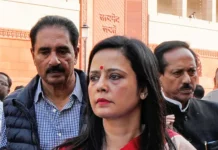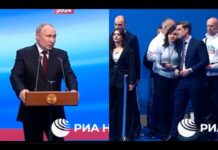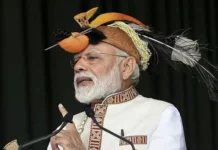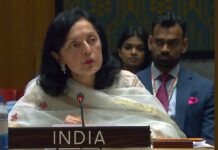LONDON: India needs to simplify its rules to make the expat community feel welcome in their homeland and encourage them to invest in the country to help shape its future, NRI industrialist Lord Swraj Paul said on Friday.
Welcoming India’s move to organize the first Regional Pravasi Bhartiya Diwas here, Paul said, “The world knows India largely through contact with its expat community and expat successes reflect well on India. India should appreciate that the expats are the global personality of India.”
He also lauded the contribution of the Indian Diaspora to the British/European societies and economies.
Paul said expats can contribute a lot to their mother country, but “it is singularly unfortunate that the biggest barriers to expat engagement with India have been erected by Indians themselves”.
“Ever since 1980 the expats have been yearning to do more for India but sadly have been discouraged by some members of the establishment, some politicians and the local business community,” he said.
Paul, the founder-Chairman of the Caparo Group, recalled that he was one of the first persons to substantially invest in India.
“This frightened the business community largely because this type of participation would soon expose the fact that they were running public companies like private fiefdoms. No corporate governance, no shareholders interest, no transparent financial reporting. Corporate abuse was rampant in most of those companies,” he recalled.
“The so-called owners actually had very small shareholdings of their own and felt threatened when this became widely known. Therefore they began big lobbying campaigns to keep expats out and largely succeeded in doing so,” Paul said and expressed hope that the new government would address concerns of the Diaspora.
“We now have a one party government, and a prime minister who appears determined to make Indian expatriates feel welcome in their homeland. At the same time he has also declared his determination to stamp out corruption.
“I congratulate Prime Minister Narendra Modi on these initiatives. It was refreshing to hear his speech at Madison Square Gardens (in New York) last month. This prompted me to issue the statement ‘Prime Minister Modi’s decisions make the Diaspora feel truly welcome’,” he said.
“India now needs to simplify the rules and make sure that all inward investment whether in infrastructure, business, health, education, research etc conforms to those rules. When it does not, it must be disallowed,” Paul said. . “Avoiding compliance, making a fast buck, and investment without contributing to nation-building have all been tolerated for too long,” Paul said.
“It is also necessary to kill the process where every case, every input, has to be individually considered by the government before approval,” he said.
“This is so time consuming and opens the door for local lobbyists to stall proceedings. It also creates opportunity for corruption,” Paul said, adding that a lot of companies trying to invest in India have suffered from this and it has given India a bad name.
“We have a mature President with a wealth of experience having held every important portfolio; a deeply committed Prime Minister, and a Finance Minister who is widely regarded as highly competent. All of them are determined to make India a fairer society, and secure for the nation its due place in the world,” he said.
“Their efforts have generated high hopes. For the first time in a long while, these expectations appear to be within reach. It seems that at last there is recognition of the worth of expats and the value of expat contributions. Let nobody in India try to derail it. There will surely be attempts by vested interests to obstruct. These must be firmly resisted,” Paul said.
He praised late Prime Minister Indira Gandhi and the then Finance Minister Pranab Mukherjee for their efforts in the early 1980s for trying to involve expats for the first time in India’s growth.
Paul — Chancellor of two leading British varsities, the University of Wolverhampton and the University of Westminster — also highlighted the need for education exchanges where NRI experience has so much to offer.
“The two universities of which I am Chancellor have been working with India to set up new programs and opportunities for our young people. A large number of universities and institutions here and in other countries are trying to do the same thing.
They must be vigorously encouraged. In the Western world, many Indian academics hold very high positions – even including a president of a leading university in the US.
Across all disciplines, the most eminent institutions in the UK, US, Europe and elsewhere have a fair share of Indian faculty,” he noted.
“I feel strongly that only by providing top class education can a nation build a sustainable future.
“If we move along the pathways that are now opening, if we make the best use of the present opportunities, we could realize what I know everyone in this room wants – India that is good for its people, good for the global Indian community and good for the world,” he said.–PTI






